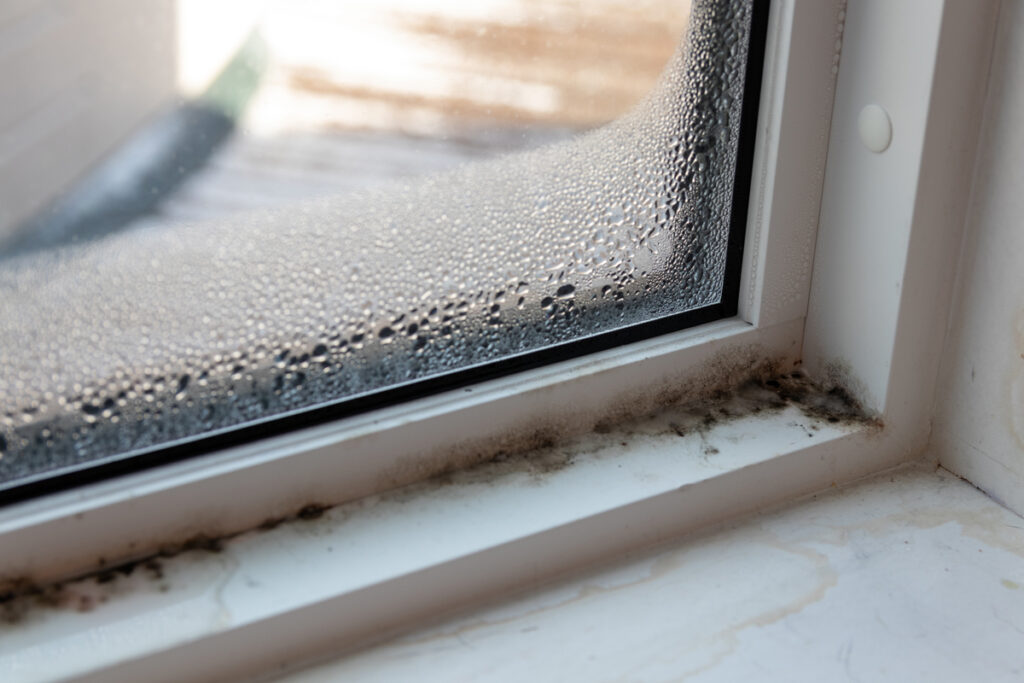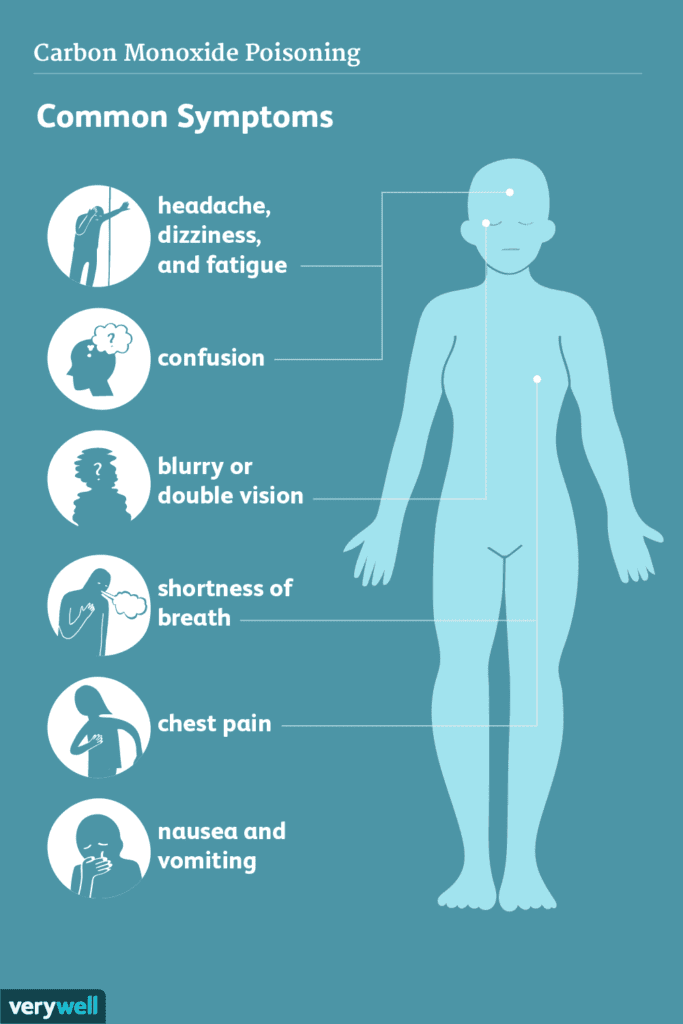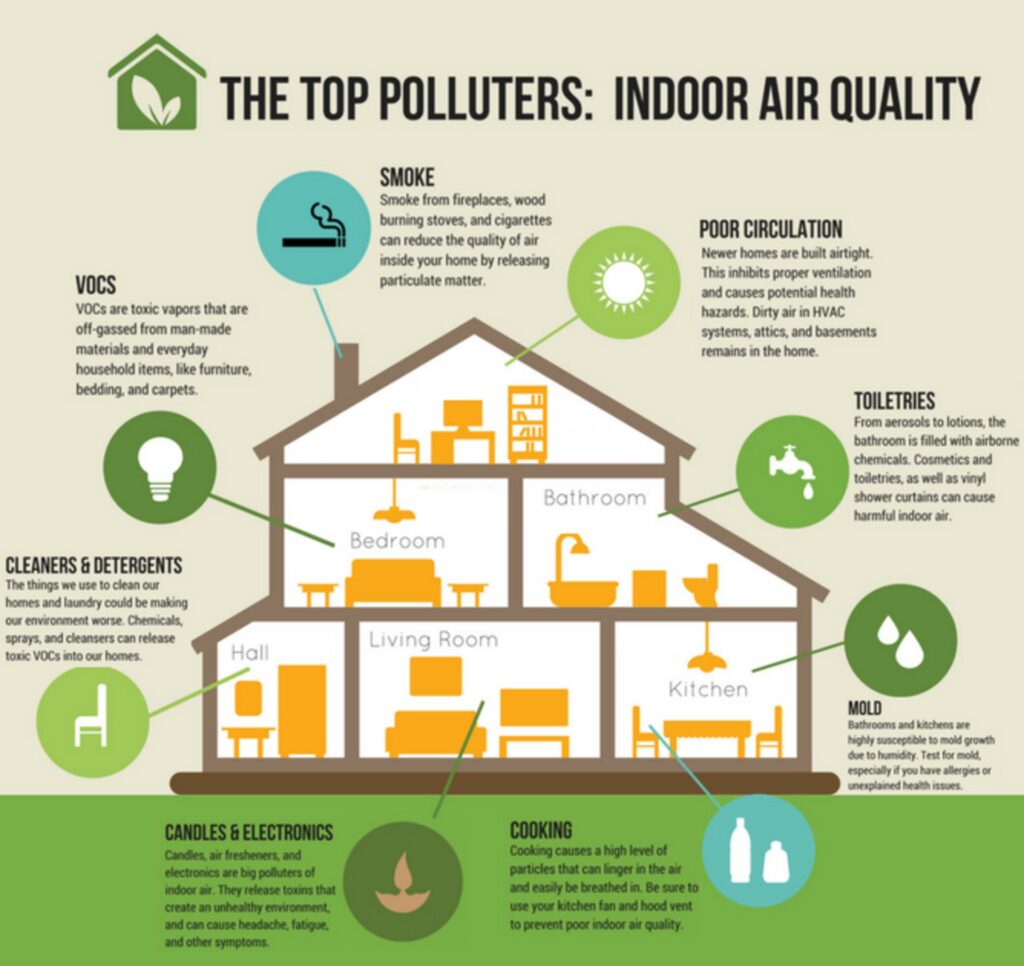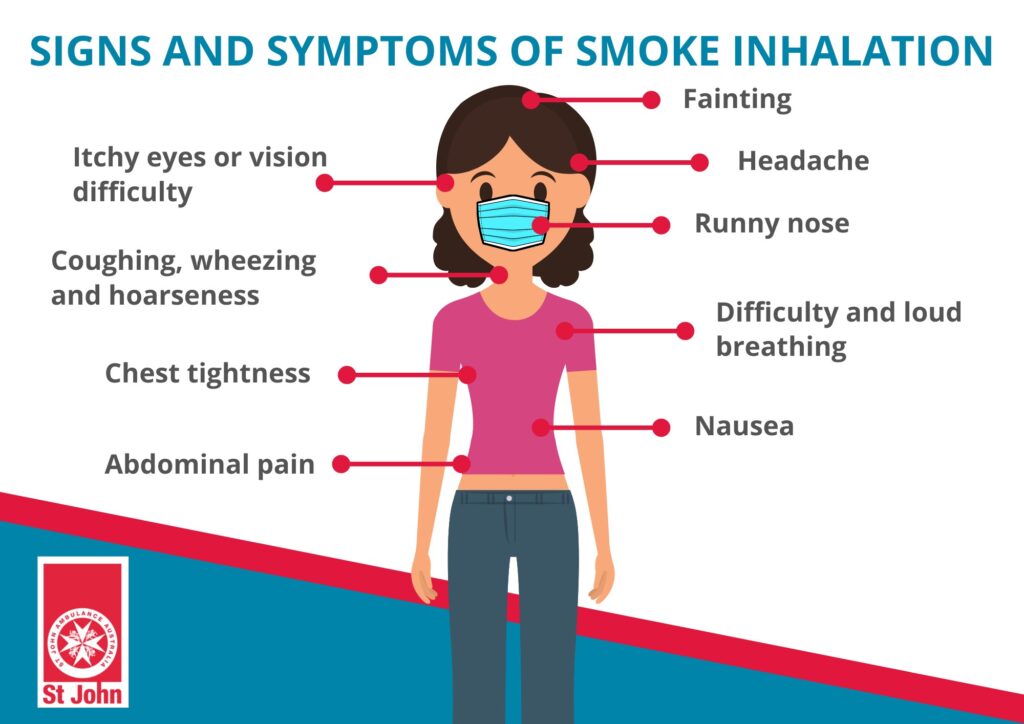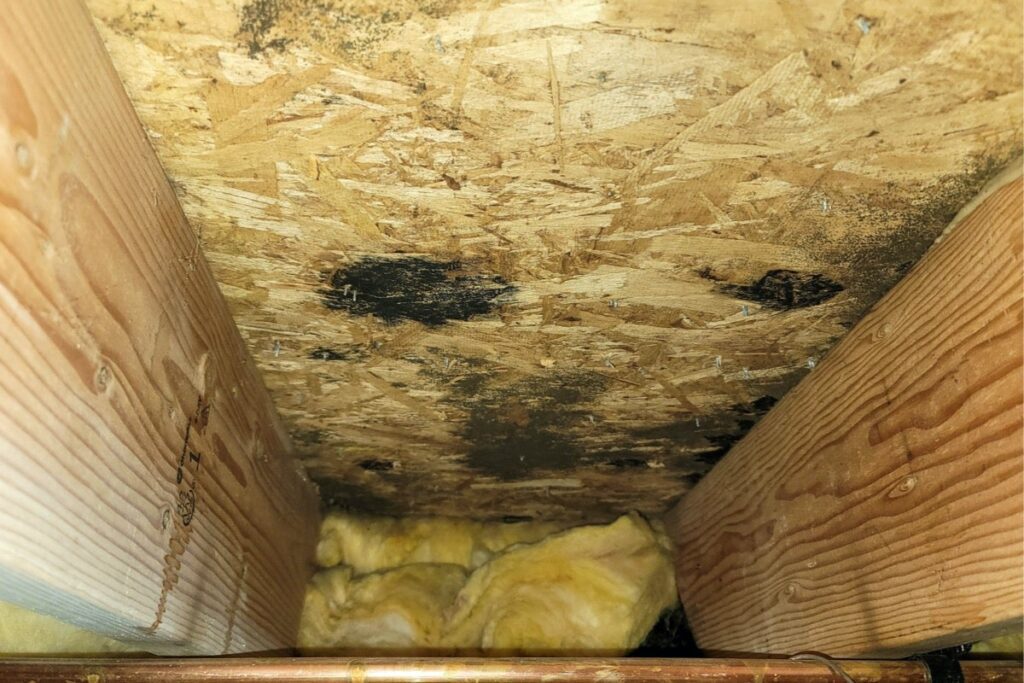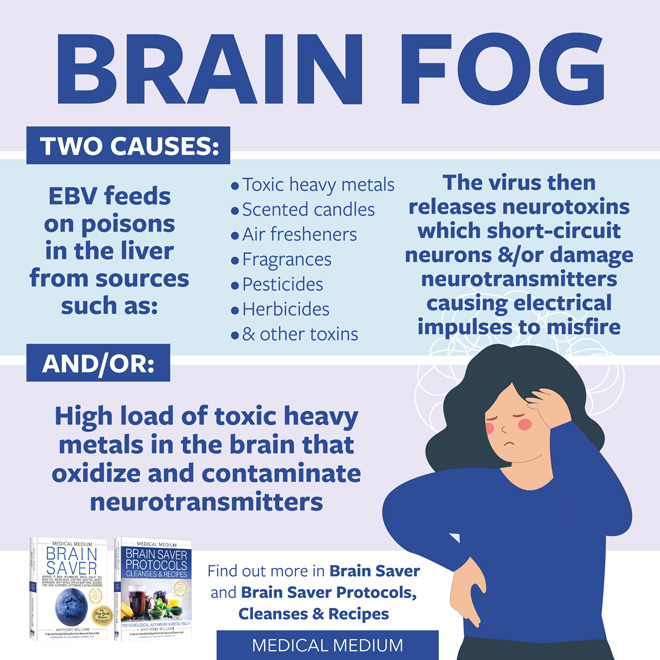If you’re considering purchasing an air purifier, you may be wondering if there are any downsides to using one. While air purifiers can certainly help improve indoor air quality, they may not be the perfect solution for every situation.
In this section, we will address common concerns and explore the potential drawbacks of using air purifiers. By understanding the limitations of these devices, you can make an informed decision about whether an air purifier is right for you and your indoor environment.
Key Takeaways
- Air purifiers have limitations and potential downsides that should be considered before purchasing.
- Understanding how air purifiers work and their limitations can help you make an informed decision.
- Consider your personal factors, such as allergies and sensitivities, before investing in an air purifier.
Understanding How Air Purifiers Work
Before we dive into the potential problems with air purifiers and their disadvantages, let’s first understand how they work. Air purifiers are designed to clean the air inside your home or office by removing harmful particles such as dust, pollen, and smoke. They do this using a variety of methods, including:
- Filtration: Air is pulled through a filter, which traps particles and prevents them from circulating back into the air.
- Ionization: Air purifiers with ionization technology emit negatively charged ions that attach to positively charged particles, causing them to fall out of the air and onto surfaces where they can be cleaned up.
- Ozone: Some air purifiers produce ozone, which can react with and neutralize contaminants in the air.
As you can see, air purifiers employ different methods to remove pollutants from the air. This makes them a popular choice for those with allergies or respiratory issues, as well as anyone concerned about the quality of the air they breathe.
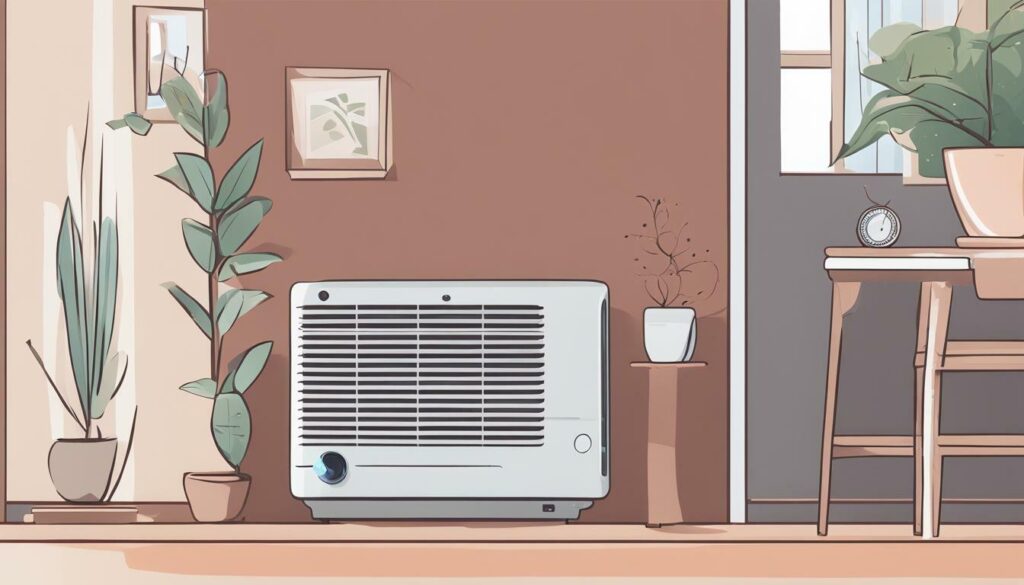

However, like any technology, air purifiers have their limitations and potential problems. Let’s explore these aspects further in the following sections.
Limitations of Air Purifiers
Air purifiers are undoubtedly useful in removing many common allergens and pollutants from the air you breathe. However, it’s important to recognize that air purifiers come with certain limitations and drawbacks that you should consider before investing in one.
One of the most significant limitations is the effectiveness of air purifiers against certain contaminants. While they can remove many common particles, such as pollen and pet dander, they may not be able to effectively remove gases and odors.
Another aspect to consider is the high maintenance requirements of air purifiers. From changing filters to cleaning the unit, these tasks can be time-consuming and costly. You need to factor in the ongoing expenses before investing in an air purifier.
Noise can also be a significant downside of air purifiers. Some models can produce noise levels that may be disruptive in certain environments. Additionally, some air purifiers may consume a significant amount of energy.
One of the most concerning limitations of air purifiers is their potential interference with the natural ventilation of your space. While air purifiers are designed to improve indoor air quality, they may affect the overall comfort of your environment. It’s important to evaluate the ventilation requirements of your space before investing in an air purifier.
Finally, there is a lack of scientific consensus regarding the overall effectiveness of air purifiers. While they may be effective in certain scenarios, other strategies may be more effective in improving indoor air quality. It’s important to consider alternative solutions and personal factors such as allergies and sensitivities before investing in an air purifier.
Despite these limitations, air purifiers can still be a valuable addition to your indoor environment. By understanding their limitations, considering personal factors, and exploring alternative solutions, you can make an informed decision that best suits your needs. A balanced approach is essential to ensure clean air in your home or office.
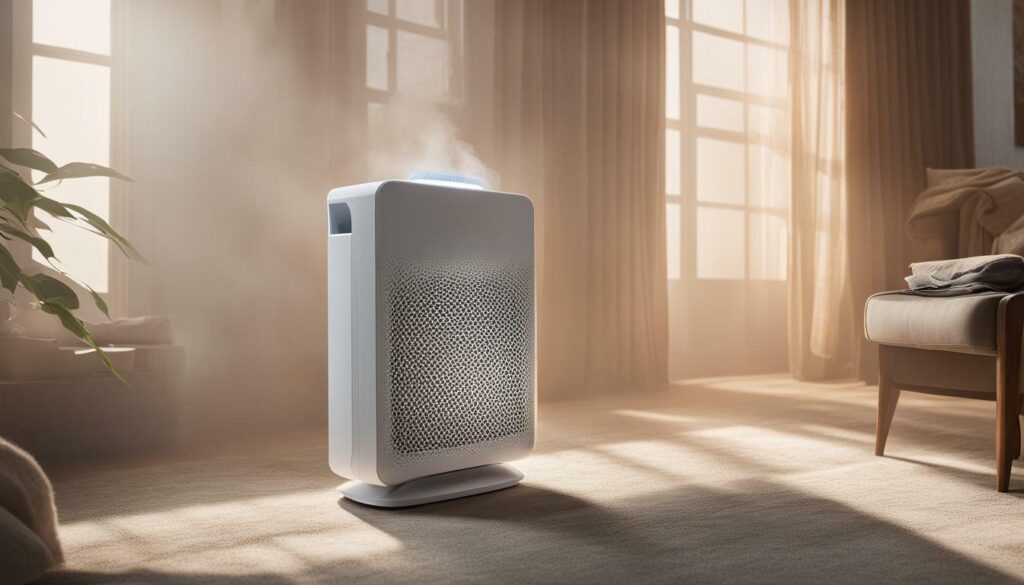

Noise and Energy Consumption
One of the negative effects of air purifiers is the noise they generate. While some models are designed to operate quietly, others can produce a significant amount of sound that may interfere with your daily activities. If you plan to use an air purifier in a bedroom or other quiet space, it’s crucial to consider the noise level before making a purchase.
In addition to noise, some air purifiers can consume a lot of energy, resulting in higher electricity bills. This is especially true for models with higher fan speeds or larger room coverage. Before purchasing an air purifier, consider its energy efficiency and operating costs to ensure it fits within your budget.
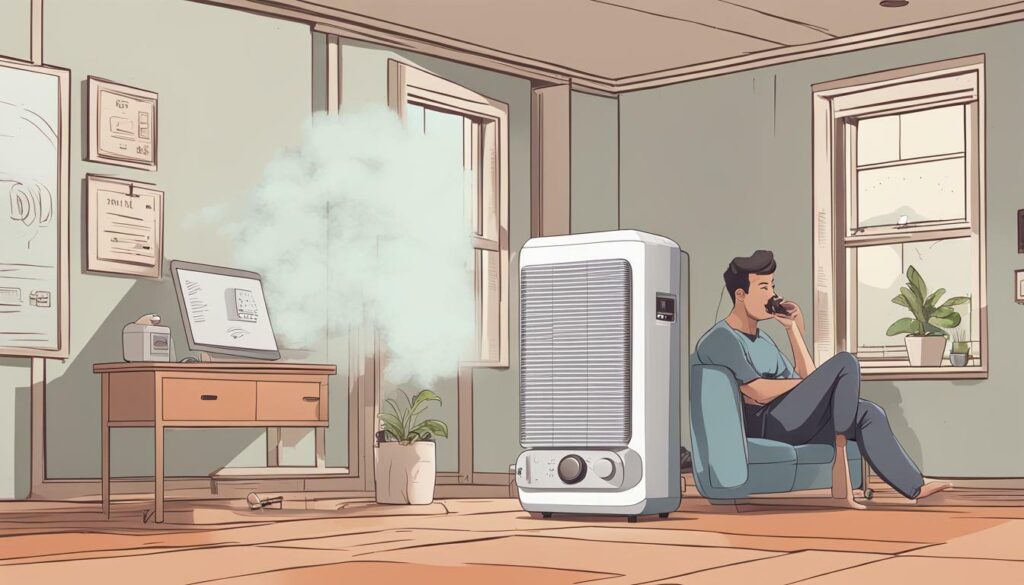

Potential Problems with Air Purifiers: High Maintenance Requirements
While air purifiers can be an effective tool for improving indoor air quality, they do come with certain limitations that you should be aware of before making a purchase. One common issue that many users face is the high maintenance requirements of these devices.
Depending on the model you choose, you may need to change filters regularly, clean the unit, and perform other maintenance tasks to keep it functioning properly. This can be time-consuming and costly, especially if you have multiple units in your home or office.
It’s important to factor in these maintenance requirements when deciding whether an air purifier is the right choice for you. Additionally, be sure to research the specific maintenance needs of the models you’re considering to get an accurate picture of the ongoing expenses you can expect.
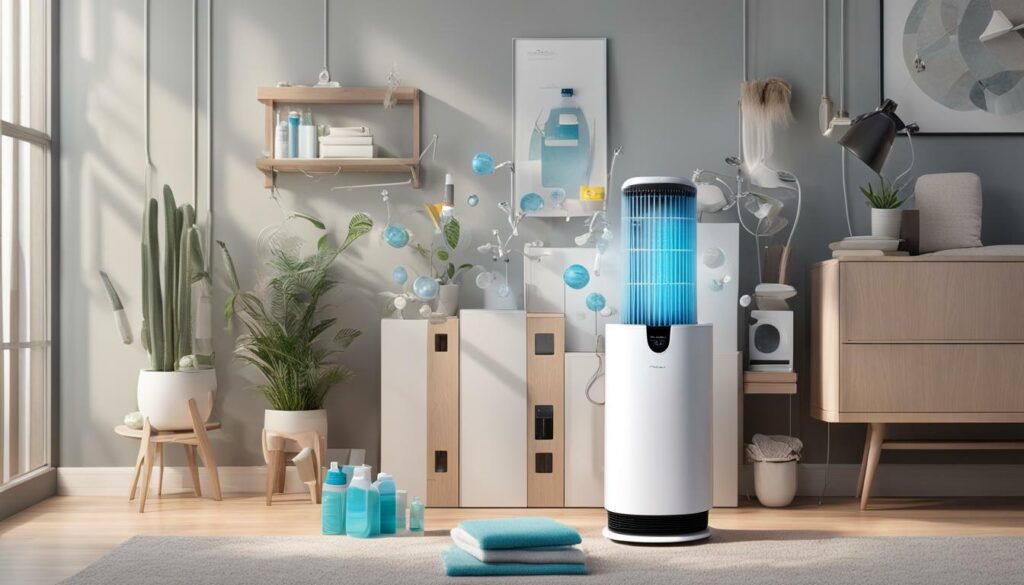

Ozone Generation and Health Concerns
Air purifiers are intended to improve indoor air quality, but some models can generate ozone as a byproduct, which can pose health risks when present in high concentrations. Common side effects of ozone exposure include irritation of the eyes, nose, and throat, as well as coughing and wheezing. Long-term exposure to high levels of ozone may also contribute to respiratory illnesses such as asthma and chronic obstructive pulmonary disease (COPD).
While certain types of air purifiers, such as ionizers, are known for producing ozone, many newer models claim to have low or no ozone emissions. However, it is important to note that even these models can produce trace amounts of ozone under certain conditions.
| The Potential Problems with Air Purifiers that Generate Ozone | How to Avoid Health Concerns Related to Ozone Exposure from Air Purifiers |
|---|---|
|
|


If you are considering an air purifier, it’s important to understand the potential health risks associated with ozone generation and take steps to minimize them. By choosing a model with low emissions and using it responsibly, you can improve indoor air quality without compromising your health.
Ineffectiveness against Certain Contaminants
Air purifiers can be a valuable tool in improving indoor air quality, but it’s important to understand their limitations. While they are effective at removing many common allergens and pollutants, they may not be as effective against certain contaminants.
Smoke, for example, can be a challenging pollutant to remove from the air. While some air purifiers may be able to capture smoke particles, they may not be effective at eliminating smoke odors. Additionally, air purifiers may not be effective at removing certain gases, such as carbon monoxide or radon.
It’s essential to choose an air purifier that is designed to target the specific pollutants you’re concerned about. For example, some air purifiers are specifically designed to remove smoke or odors from the air. By selecting the right air purifier for your needs, you can maximize its effectiveness.
However, even with the right air purifier, it’s important to remember that they are not a complete solution. Other strategies, such as proper ventilation, can also be effective in improving indoor air quality. By using a combination of strategies, you can create a healthier and more comfortable indoor environment.


Cost Considerations
While air purifiers can provide many benefits, there are also some potential downsides to consider before making a purchase. One of the biggest cons of air purifiers is the cost. Air purifiers can be a significant investment, and ongoing expenses such as filter replacements can add up over time.
When considering the cost of an air purifier, it’s important to think not only about the upfront purchase price but also about the long-term cost of maintenance. Some air purifiers require filter changes every few months, and replacement filters can be expensive. Additionally, some models may consume a significant amount of energy, which can lead to higher electricity bills.
When deciding whether an air purifier is worth the cost, it’s important to evaluate its benefits and drawbacks in relation to your specific needs and budget. While air purifiers can be a valuable addition to your indoor environment, they may not be necessary for everyone.
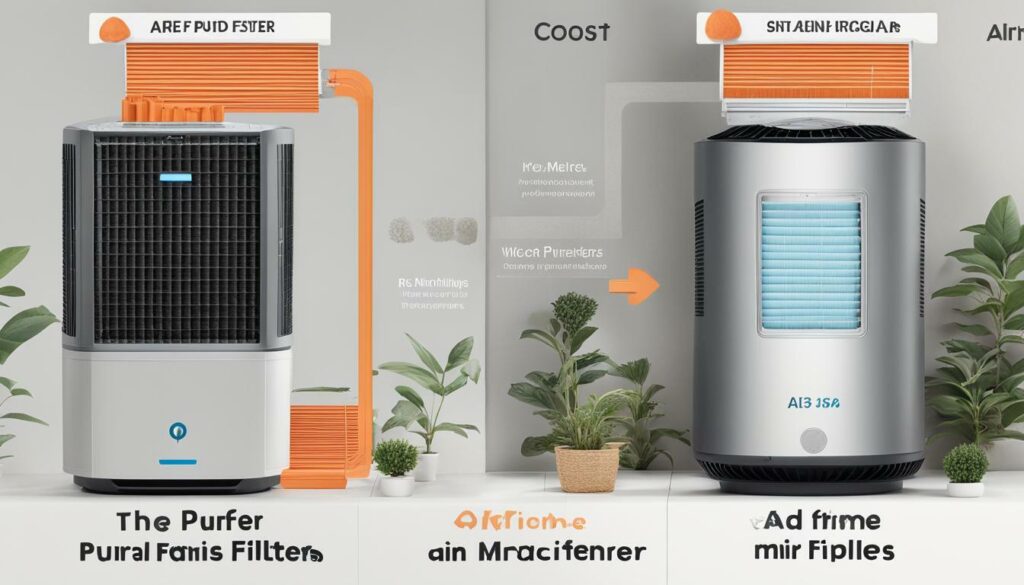

Potential Interference with Ventilation
Airflow and ventilation are critical factors in maintaining good indoor air quality. However, some air purifiers may interfere with natural ventilation in a space, reducing the amount of fresh air circulating and potentially leading to stagnant, stale air. This limitation can be particularly concerning in spaces where ventilation is already limited, such as small apartments or homes with few windows.
It’s essential to consider this factor when choosing an air purifier, particularly if you live in a space with limited ventilation. Some air purifiers are designed to work in conjunction with existing HVAC systems, while others are standalone units that may not be as effective in larger spaces. Additionally, it’s crucial to ensure that the air purifier you choose does not obstruct airflow or compromise the natural ventilation of the space.
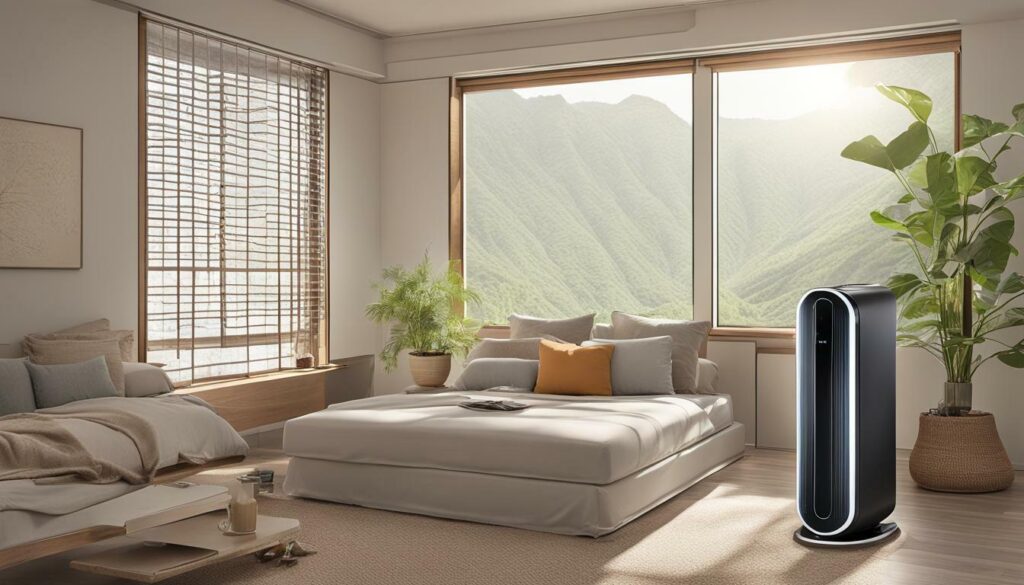

While air purifiers can be effective in improving indoor air quality, it’s crucial to consider their limitations, particularly with regard to natural ventilation. By choosing the right type of air purifier and ensuring that it does not interfere with ventilation, you can optimize your indoor environment and breathe easier.
Lack of Scientific Consensus
Air purifiers have become increasingly popular in recent years as people seek to improve indoor air quality. However, it’s important to note that there is a lack of scientific consensus regarding their overall effectiveness in various scenarios.
While air purifiers can be effective at removing many common allergens and pollutants, they may have limitations when it comes to certain contaminants. Additionally, some air purifiers produce ozone as a byproduct, which can be harmful when present in high concentrations. Noise production and energy consumption are also common concerns.
It’s important to consider multiple factors when deciding whether or not to use an air purifier in your home or office. While they may offer benefits, they also come with potential drawbacks and limitations.
To make an informed decision, consider alternative strategies for improving indoor air quality and take into account personal factors such as allergies and sensitivities. By taking a balanced approach and weighing the pros and cons, you can determine whether or not an air purifier is right for you.
Remember, clean air is essential, and it’s up to you to find the right balance.
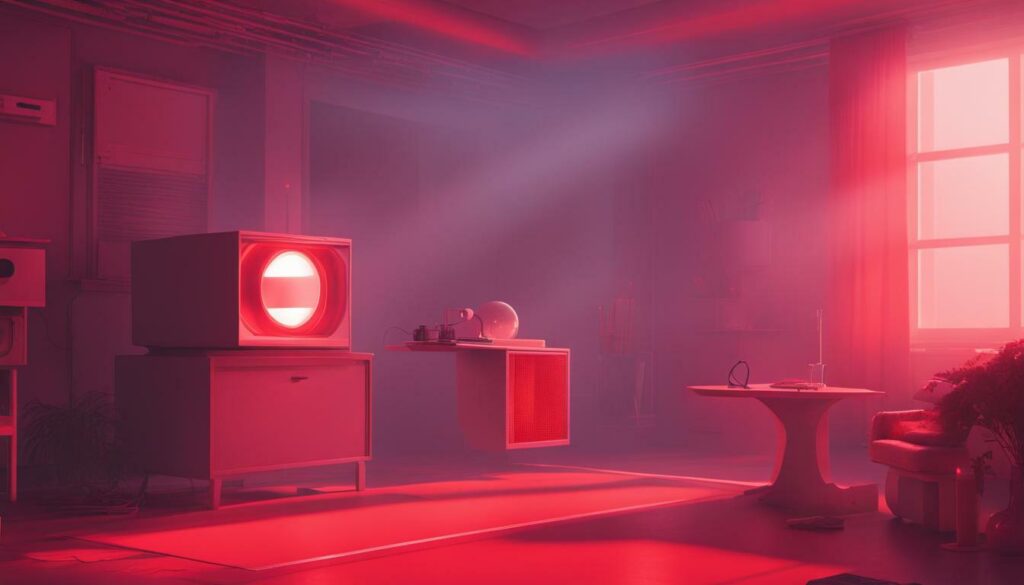

Considering Alternatives and Personal Factors
While air purifiers can improve indoor air quality, it’s essential to consider alternative strategies for reducing air pollutants. For example, improving ventilation, reducing the use of harsh chemicals and cleaning products, and regularly maintaining heating and cooling systems can all contribute to cleaner air.
Additionally, personal factors such as allergies and sensitivities should be taken into account when deciding whether or not to use an air purifier. If you have a specific allergy, such as to pet dander or pollen, an air purifier may be a helpful tool in managing your symptoms. However, if you have asthma or respiratory issues, you may want to consult a healthcare professional before investing in an air purifier.
It’s important to remember that air purifiers have limitations and potential problems that may not make them the best solution for everyone. Factors such as the size of the space, the type of pollutants present, and individual health concerns should all be considered before making a decision.
Ultimately, a balanced approach that accounts for personal factors and alternative strategies can lead to the best results when it comes to improving indoor air quality.
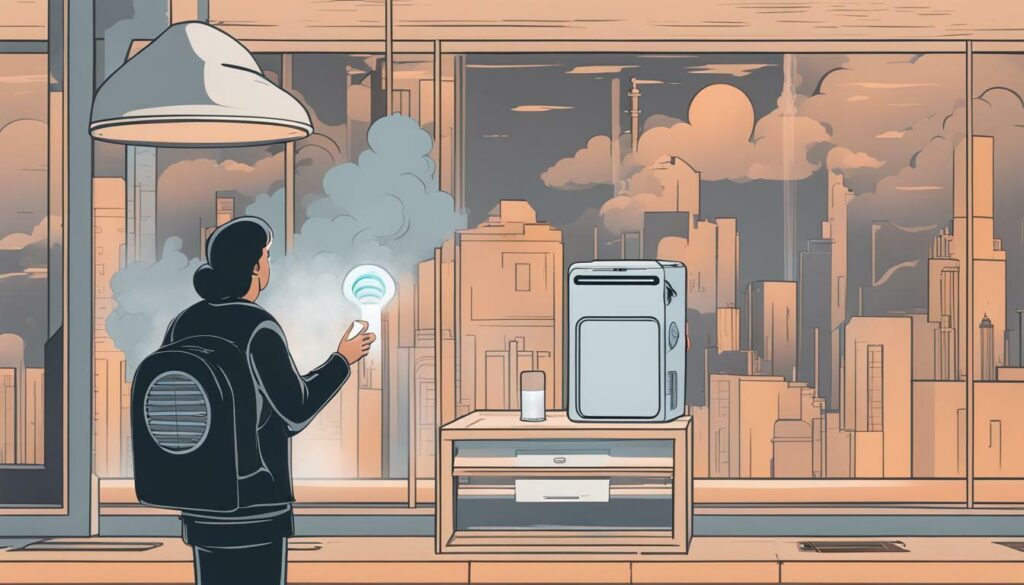

The Verdict on Air Purifiers: A Balanced Approach
Now that we’ve explored the potential downsides of air purifiers, you may be wondering whether they are still worth investing in. The answer is yes, with some caveats.
It’s important to remember that clean air is essential for maintaining good health, and air purifiers can be an effective tool in achieving this goal. However, they should not be relied upon solely as the solution to all indoor air quality problems.
When considering whether to purchase an air purifier, it’s crucial to take a balanced approach. This includes understanding the limitations of air purifiers, considering personal factors such as allergies and sensitivities, and exploring alternative strategies for improving indoor air quality.
Understanding the Limitations of Air Purifiers
As we’ve discussed, air purifiers may not be effective against certain contaminants, can be noisy and consume significant energy, and require ongoing maintenance. However, these limitations can be mitigated by selecting the right model, using it correctly, and following recommended maintenance practices.
Considering Personal Factors
Your personal factors play a significant role in determining whether an air purifier is right for you. If you suffer from allergies or sensitivities to certain pollutants, using an air purifier can provide relief. However, if you have no specific health concerns, alternative strategies may be more suitable.
Exploring Alternative Strategies
Alternatives to air purifiers include optimizing ventilation, using natural cleaning products, and reducing the indoor use of products that produce pollutants. Implementing these strategies can be less costly and less time-consuming than using an air purifier.
In conclusion, air purifiers can be a valuable addition to your indoor environment, but they are not a one-size-fits-all solution. By considering the limitations of air purifiers, your personal factors, and alternative strategies, you can make an informed decision that best suits your needs. Remember, clean air is essential, and it’s up to you to find the right balance.
So, is there a downside to air purifiers? Yes. But with a balanced approach, the benefits outweigh the potential drawbacks.
FAQ
Q: Is there a downside to air purifiers?
A: Yes, air purifiers have their potential drawbacks.
Q: How do air purifiers work?
A: Air purifiers work by filtering and capturing pollutants from the air.
Q: What are the limitations of air purifiers?
A: While air purifiers can improve indoor air quality, they come with certain limitations.
Q: Do air purifiers make a lot of noise?
A: Some air purifiers can produce noise, which can be a downside for some users.
Q: Do air purifiers consume a lot of energy?
A: Certain air purifier models may consume a significant amount of energy.
Q: Is maintenance required for air purifiers?
A: Yes, air purifiers require regular maintenance such as changing filters and cleaning the unit.
Q: Are there health concerns associated with air purifiers?
A: Some air purifiers produce ozone as a byproduct, which can be harmful in high concentrations.
Q: Are air purifiers effective against all contaminants?
A: While air purifiers are effective against many common allergens and pollutants, they may have limitations with certain contaminants.
Q: What are the cost considerations of using air purifiers?
A: Air purifiers can be a significant investment, and ongoing expenses such as filter replacements should be considered.
Q: Can air purifiers interfere with ventilation?
A: In some cases, air purifiers may interfere with the natural ventilation of a space.
Q: Is there scientific consensus on the effectiveness of air purifiers?
A: There is a lack of scientific consensus regarding the overall effectiveness of air purifiers in various scenarios.
Q: What factors should be considered before using air purifiers?
A: It is important to consider alternative strategies and personal factors such as allergies before relying solely on air purifiers.
Q: Are air purifiers still worth using despite their limitations?
A: While air purifiers have limitations, they can still be a valuable addition to your indoor environment if used in a balanced approach.


